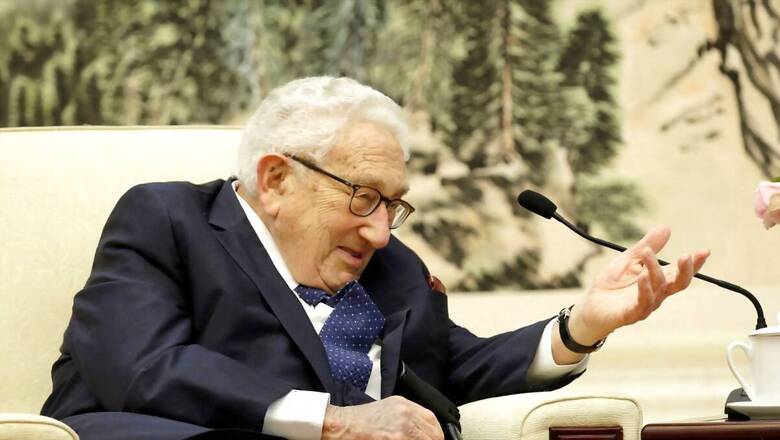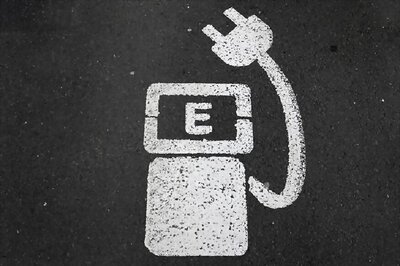
views
From openly criticising Prime Minister Indira Gandhi in the 1970s to bating for robust India-US ties in the 21st century, Henry Kissinger came a long way before he passed away at the age of 100 on Thursday. Kissinger, often hailed as the greatest American diplomat among admirers, initially had disdain for India’s leadership in the 1970s.
However, decades later, he advocated for stronger US-India ties under Prime Minister Narendra Modi. This shift reflected the realpolitik dictum in international relations that he lived by: “There are no permanent friends or enemies, only permanent interests.”
Kissinger’s Take Gandhi
In declassified 2005 tapes, former US President Richard Nixon (1969 to 1974) and then Secretary of State Kissinger, discussing then-PM Indira Gandhi, use derogatory language. In the same document, Nixon referred to Gandhi as an “old witch,” while Kissinger reportedly called her a “b***c”.
After Modi came to power in 2014, Kissinger vouched for strong ties with India. Some even say that he had become a “great fan” of Prime Minister Modi, according to a PTI report. During Modi’s State Visit in June this year, Kissinger despite his poor health, travelled to Washington to listen to Modi’s address at the luncheon at the State Department.
“When I think about India…’
Kissinger made his views known to the public on India when he made a fireside appearance in June 2018 at US India Strategic and Partnership Forum (USISPF). “When I think about India, I admire their strategy,” Kissinger said during a rare appearance in Washington to attend the first annual leadership summit of the USISPF in June 2018.
His ties with India in the 1970s when he was in the administration had soured, but before he turned to China, his first preference was India. It was at his advice, in the capacity of both the National Security Advisor and Secretary of State, that the US Chambers of Commerce in the 70s established the US India Business Council (USIBC).
Permanent member of the Security Council
As early as 1972 he had advocated for India and Japan to be the permanent member of the UN Security Council. Historians say that both Kissinger and then-President Richard Nixon could not see eye-to-eye with the then-PM Gandhi and they turned their attention to China.
After the end of the Cold War, and the emergence of India as a strong power in the last 10 decades, his views on India had changed and for successive administrations, Kissinger has been advocating strong ties with India. Prime Minister Modi has had a few meetings with him during his trip to the United States.
‘Edge of confrontations’
At another public event, Kissinger, then 96, said the Bangladesh crisis pushed the two countries to the “edge of confrontations”. “India was at the beginning of a historic evolution and not all of the problems that concerned were of equal importance to India. India was heavily involved with its own evolution and the policy of neutrality,” he then said in New Delhi.
“If you look at the world, there are upheavals in almost every part of the world and you cannot necessarily develop a general concept for each of them but you can work together on the essentials of peace and progress. Then I would say no two countries now are better situated to evolve their friendship,” Kissinger said. A day after Dhaka was liberated on December 16, 1971, then President Nixon was told by Kissinger that he had “saved West Pakistan,” according to confidential papers since declassified by the US State Department.
Kissinger told then-President Gerald Ford after his meeting with Indira Gandhi in October 1974, a few months after India’s first nuclear test, that she had felt an “almost pathological need” to criticise the US but at the same time desired an improvement in Indo-US relations on a “more equal” basis after Washington recognised India as an “important country in the world”.
(With PTI inputs)



















Comments
0 comment